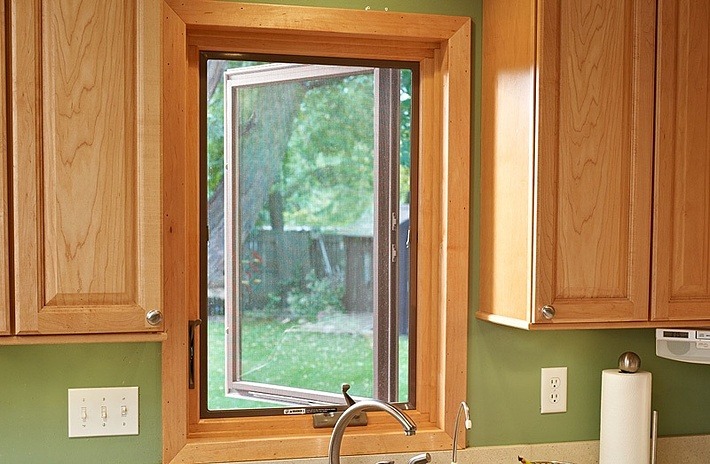


Screens are an essential component to any window or patio door. They keep insects out, so you don’t have to worry about flies buzzing around and contaminating your food, or about wasps or bees stinging your children. Screens also help keep leaves and other small debris from dirtying your home. While window screens may seem like a simple apparatus, they are not all the same. There are actually three main screening options for windows and patio doors, and you should consider the pros and cons of each when choosing screens for your Dayton home.
Aluminum window screens have been around for many years. If you have older windows, there is a good chance that the screens you currently have, are made from aluminum. This was a popular material for screens several decades ago because, unlike some metals, it does not rust. It’s also lightweight, but rigid enough to maintain its shape when hung in a window or patio door opening.
Aluminum window screens are very affordable, but they are a bit more prone to tears and rips than the other types of screens mentioned here. This is especially a concern if you have a cat or dog who you fear may scratch at the window screen. The aluminum is also fairly obvious, impeding your line of vision through the window and somewhat reducing the amount of light that comes through the window.
Fiberglass window screens cost a little more than aluminum ones, but they are a more durable choice for your Dayton home. Fiberglass is very strong, so it’s less likely to tear if a child or pet scratches at it. It can also be coated in PVC, altering its color. This is a real advantage if you prefer that your window screens not be metallic. Lighter colors don’t obstruct your line of vision as profoundly.
Aside from the higher cost, the other downfall of fiberglass window screens is that they do sometimes stretch with age. If something in your window, like a plant, puts pressure on the fiberglass screen, it may eventually stretch out.
TruScene Insect Screens are the premier option for your Dayton home. These screens are made from a special, micro-fine steel mesh. The steel is so thin that you can see through the screens with ease. More sunshine and air come through, and you don’t have to worry that your view of your beautiful backyard will be obstructed.
TruScene window screens protect against the smallest of insects. If you prefer a wood finish to a colored one, you can choose Wood-Veneered TruScene screens. These are made to match wooden windows and are available in real maple, pine, or oak. Both casement and awning windows can be fitted with Renewal by Andersen’s Wood-Veneered TruScene Insect Screens.
All of Renewal by Andersen’s insect screens are available in half-screen size for double-hung windows. They’re easy to clean and made to last. Just remove the window screen from the inside of your home, clean it thoroughly, and put it back into place.
Contact us to schedule your free, in-home consultation with one of our design consultants. We’ll be happy to discuss your needs and the best screening options for windows and doors on your Dayton home.